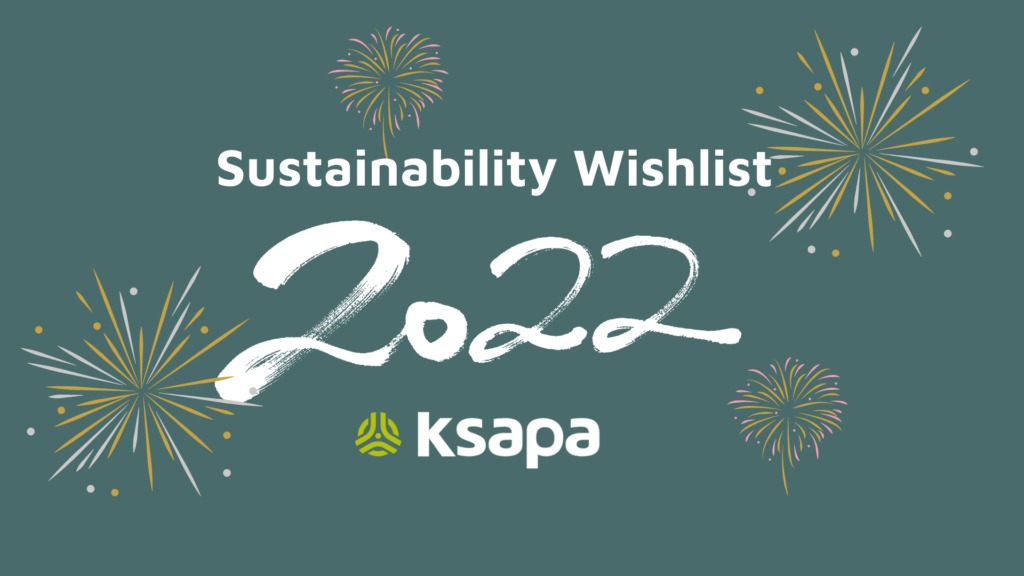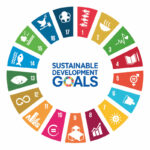In our last newsletter, we offered our 2-minute recap on 2021 sustainability developments. Now, as we celebrate the new year, we return with a 6-part trend list to accelerate sustainability across investor and corporate communities.
1. Elevating Social and Human Rights Issues
There can be no doubt that, compared with just a few years ago, social issues are increasingly front and center of the corporate and financial agenda. That general tendency was only accelerated by the Covid-19 global pandemic. That said, we are nowhere near where we need to be in terms of effectively tackling social issues. Certain corporate players are coming to terms with their Human Rights risks. Others simply cite a lack of data as a reason not to get started.
When investors first began working on climate issues, none of them had readily-available data either. That didn’t stop us then; it shouldn’t now. Now, for all the progress that has been made, addressing the climate challenge necessarily hinges on our collective capacity to secure a just – in other words, fair – transition.
This is precisely where adopting a Human Rights lens can help. This indeed helps us draw everybody’s attention to the importance of onboarding the entire global community in our ongoing journey towards climate resilience. The most cynical consider this too ambitious or complicated. We, on the other hand, contend no company, investor or government can reasonably explore any other avenue than that of an inclusive climate transition
2. Ending Tax Avoidance and Ensuring Fairness
The OECD recently made great strides on curbing global tax avoidance. Ending inequality for good requires a holistic view that extends well beyond social issues and into governance and environmental considerations. This logically includes the issue of taxation, as one of the biggest drivers of global inequality is… tax avoidance. The tax revenues of individuals and businesses indeed provide governments around the world with financing for much-needed public services and socio-environmental programs. In other words, these moneys are instrumental in addressing urgent challenges.
This is why it’s high time to broach the topic of global taxation. It is key for investors and corporations to ensure internal alignment across every function to explore tax optimization. This not only from a place of displaying creativity to boost profits. Also because a Human Rights perspective is key for organizations to understand why and how tax fairness may drive positive externalities for business, investments and society alike.
From a Human Rights standpoint, we look forward to companies and investors using their clout to encourage governments as well as foreign investors to seize the opportunity of an honest conversation on tax fairness. We believe this would prove key in our collective capacity to promote and fund greener and more equitable societies around the world.
3. Delivering on Net Zero Commitments and Sustainable Goals
For a number of years now, climate change has become the number one issue for corporations and investors alike. Much in the same spirit, COP 26 pushed for a consensual approach towards limiting global warming to 1.5° Celsius. That said, the question of resource allocation remains pending. Hopefully COP 27 will more effectively pressure governments and businesses to put their money where their mouth is.
Meanwhile, time running out on fulfilling the global climate agenda as set out in the Paris Accord. Worse even, this is unlikely to change anytime soon. With COP26 now behind us, we are left with an unmistakable sense that climate action has drastically accelerated all around. Still, we need more corporations and investors to step up to the plate if we are to credibly map out our way towards net neutrality before 2050.
Sure, this involves engaging with governments, too. They are key in aligning companies and investors against a common agenda. This should not, however, skirt around the imperative of holding Net Zero pledges to their work. To be credible, they must deliver a rapid decrease of climate emissions before 2025, 2030 at the latest.
4. Bolstering Corporate Political Responsibility
Climate lobbying has only delivered delays, obfuscation and denial. Corporations engaged in negative influencing have only slowed down political, financial and business action. As a result, debates during COP26 left us on a pathway to a 3°C global warming. This would be a disaster for humanity. Let us all ponder the simple truth no business nor financier can survive without people.
Our collective climate failure is therefore a business failure.
It is time for businesses to better align their statements and political influence, resolutely engage with governments and tackle the climate agenda. Not just for the planet: for the sake of their very own business! If we are to address climate change, political leaders, businesses, finance and civil society organizations must all work together with urgency. Companies and investors must set their sights beyond corporate responsibility and align their statements and political influence. In other words they must demonstrate of corporate political responsibility.
5. Ensuring Accountability in an Age of Greenwashing
Last, but certainly not least, is corporate accountability. That means tackling a growing greenwashing trend. Gone are the days when ESG analysis was a anecdotal concept left to marketing teams. A growing number of investors encouragingly boast dedicated ESG resources in direct contact with the C-Suite and Board. Looking ahead, many are now considering their role in driving sustainability outcomes.
6. Putting Innovative Solutions to Work for the Most Vulnerable
Our experience demonstrated time and time again how conventional approaches leave those with lesser levels of education behind. The same goes for minorities. Conversely, those who somehow end up marginalized in the workforce tend to be a key lever for climate action or social equity. It follows we should collectively grant particular attention to the very same people.
That is precisely why we designed and developed the Scale-Up Training, Traceability and Impact initiative (SUTTI). By rolling out this program, we believe we can transfer training to large communities that have, until now, not had access to professional education. We do not claim this to be a silver bullet. Yet SUTTI is a concrete and practical means to bolster the corporate license to operate by reuniting companies and their supply chain workers. Set against a backdrop of robust climate action, we empower cross-value chain collaborations and deliver a concrete means to mitigate Human Rights risks.
With this wind in our sails, we stand at the ready to help corporations and investors take on their most pressing ESG issues head-on. From there, we look forward to identifying the best ways to double down on sustainability progress and amplify sustainability successes.
While far from an exhaustive trend list, these 6 sustainability wishes are a great place to start in 2022.









